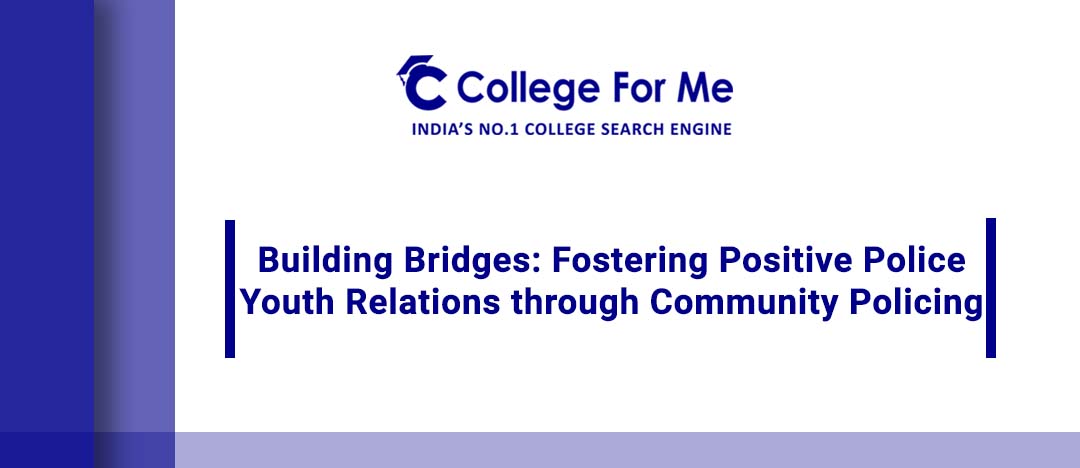Career Scopes Of A B.Tech. Student
There is a high demand for B.Tech. degree holders in the private sector, yet, there is also the opti...

The relationship between law enforcement agencies and the youth they serve is a critical aspect of community dynamics. Historically, strained police-youth relations have hindered effective crime prevention and community safety efforts. However, the philosophy of community policing has emerged as a transformative approach that emphasizes collaboration, communication, and mutual understanding between police officers and young individuals. This article delves into the significance of positive police-youth relations and the role of community policing in forging strong bonds between law enforcement and the youth they serve.
The Significance of Positive Police-Youth Relations
Positive police-youth relations are pivotal in shaping the safety and well-being of communities. When young individuals perceive law enforcement as an ally rather than an adversary, they are more likely to cooperate with police efforts, report crimes, and engage in proactive crime prevention. Conversely, strained relations can lead to distrust, alienation, and a lack of cooperation, hindering the ability of law enforcement to effectively address community concerns.
The Role of Community Policing
Community policing represents a paradigm shift in law enforcement philosophy, moving away from a top-down, authoritarian approach toward a collaborative and community-centric model. At the core of community policing is the idea that police officers are not just enforcers of the law, but partners in community well-being. This approach involves officers engaging with community members, building relationships, and working together to identify and address local issues.
Key Principles of Community Policing
Empowering Youth Engagement
A fundamental aspect of community policing is empowering young individuals to actively participate in shaping the safety and character of their neighborhoods. Youth outreach programs, mentorship initiatives, and collaboration with schools provide opportunities for police officers to connect with young people, listen to their concerns, and provide guidance. This engagement not only fosters positive police-youth relations but also instills a sense of responsibility and ownership among youth for the well-being of their communities.
Building Bridges for Safer Communities
In an era of increasing social complexity and evolving challenges, positive police-youth relations play a pivotal role in community safety. The philosophy of community policing offers a framework for building bridges between law enforcement and the youth they serve, fostering mutual understanding, cooperation, and a shared commitment to the betterment of society. By adopting a collaborative approach, law enforcement agencies can pave the way for safer, more resilient communities where young individuals feel empowered to contribute positively & take an active role in shaping their future.

There is a high demand for B.Tech. degree holders in the private sector, yet, there is also the opti...

If you are looking for a bright and prospective career, then getting a B.Tech. in CSE must be under ...
Comments (0)